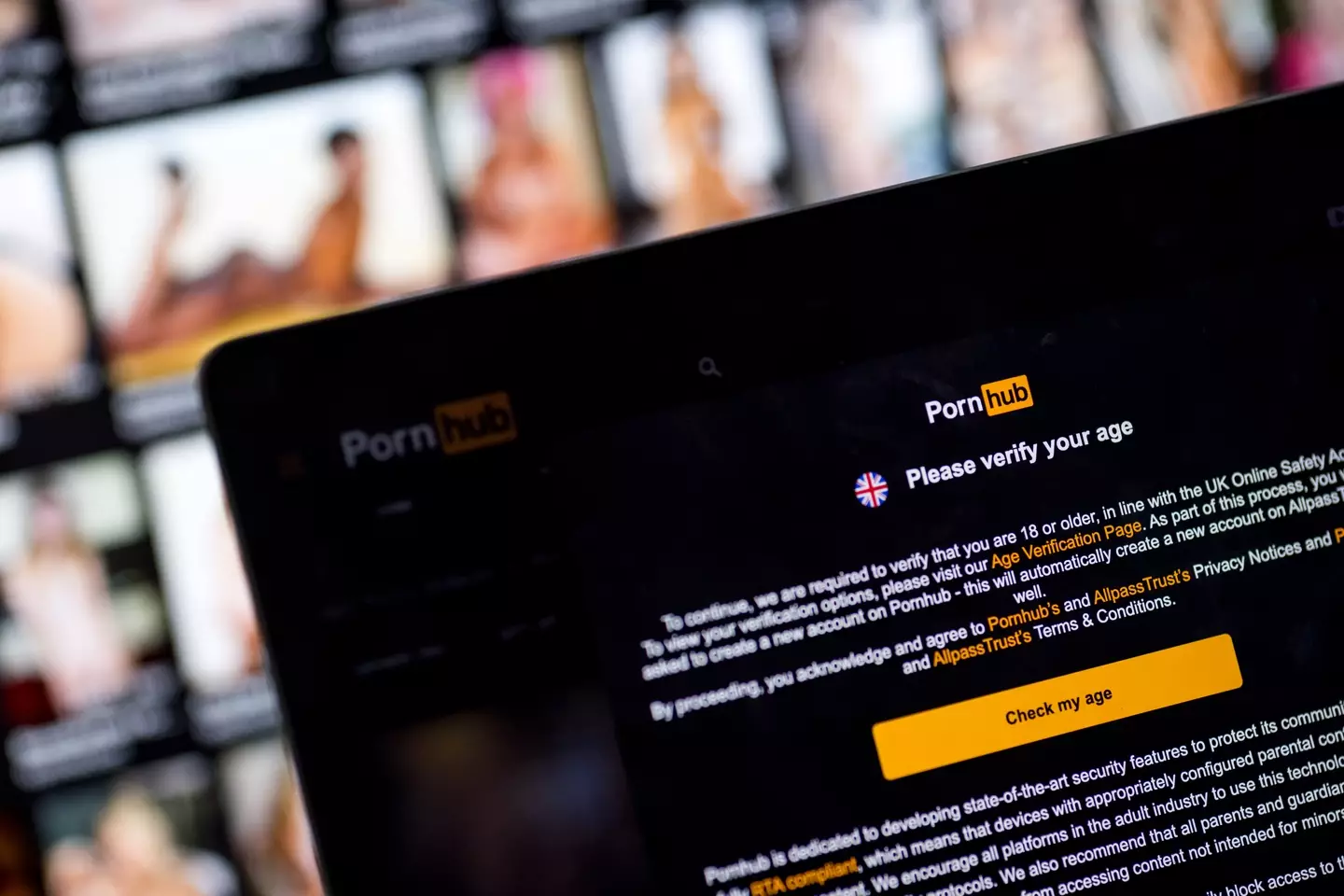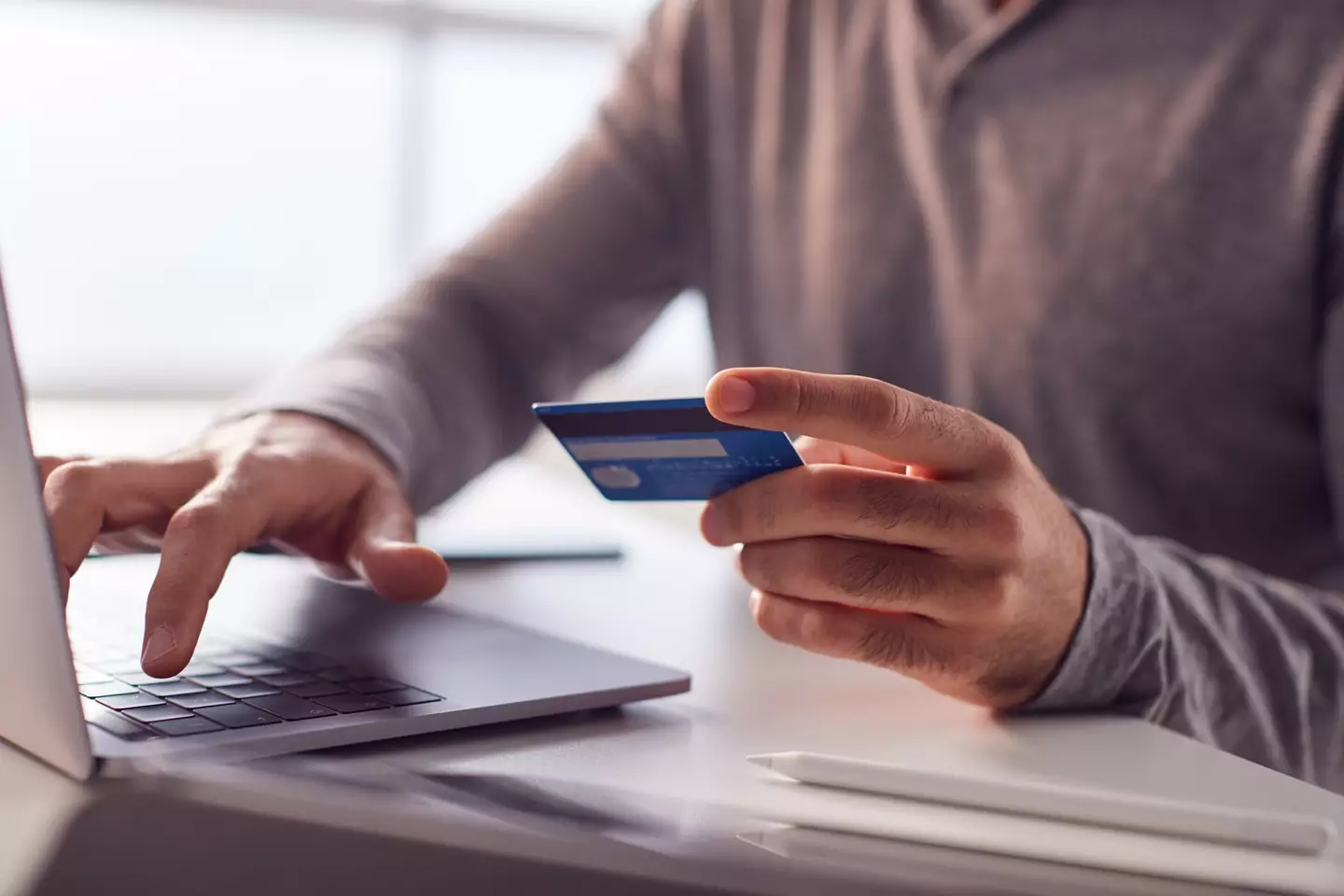
The past few days have seen quite a difference for people in the UK wanting to get onto the internet.
Certain websites are suddenly demanding more of your information to access them and it's a change that's not gone down well with people who'd prefer as few distractions and obstacles to their getting onto the world wide web.
It's all because of something called the Online Safety Act, which came into force on Friday (25 July) in a big way as Brits were suddenly told they'd need to provide some age verification before they could proceed.
For some it's all about protecting children from harmful content, while others think this is a crackdown on them and puts their information at risk by demanding they hand it over to all sorts of websites.
Advert
It's a time of big change online for the UK, so here's everything we know about it.

The websites with age verification
Hoo boy, there's a lot of them, probably because there's an absolute boatload of porn sites on the internet, though not every single site hit by this is there for the purpose of showing you naked people.
Among the many websites that have signed up to the Online Safety Act are Pornhub, BoyfriendTV, Cam4, FrolicMe, inxxx, Jerkmate, LiveHDCams, MyDirtyHobby, RedTube, Streamate, Stripchat, Tube8, and YouPorn.
That's just a small selection on the porn sites that have been affected by this, as Ofcom reckons that from last Friday (25 July) onwards about 6,000 porn sites will have to ask people to verify they are over 18.
Social media platforms such as X and Bluesky are also requiring age verification to access some of their content, as is the world's most popular forum Reddit and the widely used chat app Discord.
Even poor Wikipedia has been affected, with site bosses suggesting they might have to start rate limiting Brits every month.
The dating app Grindr has also signed up to the Online Safety Act.

What ID can you provide?
The idea is that you, dear internet user, will have to give something to these websites a little more concrete and verifiable than clicking a box saying you're at least 18-years-old and that you've read the terms and services you definitely scrolled past.
Ofcom has provided a non-exhaustive list of seven options sites can use to see that you're really the person you claim to be.
- Photo ID matching, where you upload an image of some form of identification and a picture of yourself to prove it's really you.
- Facial age estimation, in which you submit a picture of yourself and AI will scan it to see if you're of appropriate age, this method will be very unfair if you happen to be Thomas Brodie-Sangster.
- Email-based age estimation, you submit your email address and it gets checked to find other places you've used it to access things online and tries to work out your age based on that.
- Open banking, giving the site permission to securely access your online banking information to see if you're the age you ought to be.
- Credit card age checks, you upload credit card details and if they turn out to be legitimate you're verified as you need to be over 18 to use a credit card in the UK.
- Mobile network checks, in which you give a site permission to see if your phone number has age filters on it and if it doesn't, they're satisfied you're over 18.
- Digital identity services, in which you have a (hopefully) secure digital identity which will provide the information you need to look at sites with potentially 'harmful' content'.

Government response to the 'loophole'
Since these restrictions are being applied to internet users in the UK there are some ways to get around it, though websites wondering if their users will find these ways are best advised not to tell them what to do.
Some internet users have found that uploading pictures of people other than themselves has worked to get around the age checks, but the big 'loophole' is those who have a VPN.
That stands for 'virtual private networks' and it's what about half the podcasters and YouTubers keep trying to sell you during the sponsorship sections of their shows, while sign-ups from Brits have skyrocketed in recent days.
A VPN does many things, among them it can mask your IP address and make it seem as though you're online in another country, which would bypass the restrictions placed on Brits by the Online Safety Act.
The government has said it will be illegal for platforms to encourage the use of VPNs to get around age limit restrictions, and told parents to be aware of whether their children were using a VPN.
Ofcom's group director for online safety, Oliver Griffiths, has said why he thinks the restrictions are important even if there are ways around it.
He said: "Our research shows that these are not people that are out to find porn - it’s being served up to them in their feeds
"And we think that these measures are going to have a really big impact in terms of dealing with that particular problem.
"There will be teenagers - dedicated teenagers - who want to find their way to porn, in the same way as people find ways to buy alcohol under 18. They will use VPNs. And actually, I think there’s a really important reflection here. It’s not just us, in terms of making life safer online.
"Parents having a view in terms of whether their kids have got a VPN, and using parental controls and having conversations, feels a really important part of the solution."

Is your information safe?
Serious concerns have been raised over Brits sharing their personal data with a third party to access certain websites, as not only are they having to supply personal information or their own image but they're doing it in some cases to access sites that they might rather keep private.
Many sites say they will delete the information you send them once it's been used for verification or it'll be stored safely, but the internet is full of hacks and leaks designed to get at your data, and then there's whether the companies will do with your data what they say they'll do.
It's not great if we end up in a situation where there's a data breach and people can uncover which sites Brits have been choking the chicken or flicking the bean to.
Ofcom says there are ways to do these checks 'safely', but they also warn that you should 'exercise a degree of caution and judgement when giving over personal information'.
Great.
Sites which aren't complying with safety guidelines may be referred to the Information Commissioner’s Office, which would be very bad for them.
Companies found to be breaking the rules of the Online Safety Act run the risk of being fined up to £18 million or 10 percent of their global revenue.
Andrew Wailes of PlaySafe ID told LADbible that the company was 'legally responsible and liable' for your data, and it would be a matter of trust.
He said: "It might be stored somewhere good it might be behind good security, but ultimately, you need to trust the company.
"It's not that you have to trust the KYC (Know Your Customer) provider that you're working with. You need to trust the company that's employed that KYC provider, because they're ultimately in charge of what happens to your stuff."

Why is the UK doing this?
The government have said the Online Safety Act is in place to 'protect children and adults online' by making internet companies more responsible for the content they show to people.
13 is the average age for a Brit to first see explicit content online, but one in 10 children first see something they're not old enough to be looking at at the age of nine.
The strongest parts of these new laws were designed to stop children from having 'harmful' content appear while browsing the internet.
Harmful content in this case includes pornography, as well as content around self-harm, suicide and eating disorders.
A number of campaign groups have supported the Online Safety Act, which was passed through parliament in 2023 by Rishi Sunak's Conservative government and has now come into force to give companies time to prepare.
Since it got passed through parliament it's now the law of the land and everyone has to like it or lump it.
Topics: Politics, PornHub, Reddit, Social Media, Technology, Twitter, UK News